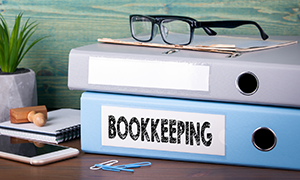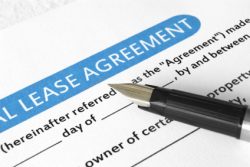 Home-based businesses can be financially rewarding and provide a certain amount of flexibility with your day-to-day schedule. Here are some tips to keep your business running at full steam.
Home-based businesses can be financially rewarding and provide a certain amount of flexibility with your day-to-day schedule. Here are some tips to keep your business running at full steam.
- Stay on top of accounts receivable. It’s easy to get caught up with fulfilling your business obligations while invoices you’ve sent out go unpaid. Agree to payment terms in advance with new customers and immediately – but politely – communicate with them as soon as they miss a payment deadline. Keep current with regular invoicing and collections.
- Keep your bookkeeping records up-to-date. You may not realize you have an unpaid invoice that’s several months old unless your bookkeeping is up-to-date. Keeping accurate books involves more than balancing your bank accounts once a month. In addition to your monitoring your bank accounts, also consistently look at your accounts receivable, accounts payable, any debts (credit card, car loans or other borrowings), and all money you invest in your business. Ask for help if you don’t have enough time to do the bookkeeping yourself, or if you need help properly setting up your bookkeeping software.
- Check on permit requirements. Depending on what type of home-based business you have, you may be required to obtain various permits, licenses or other registrations. If you have not already done so, check with your town or city for local requirements. The Small Business Administration is also a good source to research information on permits.
- Get insured. Obtain adequate insurance for the type of operation you’ll be running. Besides the insurance required for business activities, you might consider adding a rider to your homeowner’s policy for liability protection should an accident occur on your property.
- Stay on top of technology. While you may not need a top of the line computer, be sure that the technology equipment you use can handle the bandwidth of everything you’ll ask it to do, including video calls, software apps and data storage. Also consider scheduling a time for your internet provider to visit your home to make sure everything is in working order and your security protocols are top notch. Have a back-up plan in place for when a device breaks down, including where you’ll go to have it repaired.
- Cash in on tax breaks. Take advantage of the tax breaks available to home-based businesses, including deductions for supplies, equipment and vehicle expenses. You may even be able to deduct the cost of your home office, including a pro-rated amount of your real estate taxes and utilities, if certain conditions are met.
- Set aside money to pay your taxes. Ask for help to calculate how much of your incoming cash you should be setting aside to pay your federal, state and local taxes. Consider opening a separate bank account to transfer your tax money into.


 Renting an apartment or condo, leasing a piece of equipment, renting business property, or leasing a car all involve the common practice of borrowing something that is owned by others. This experience can easily become a nightmare with a bad landlord or if you don’t understand your obligations. In Part 2 of this two-part article, we give you the rest of the tips to becoming a smarter renter.
Renting an apartment or condo, leasing a piece of equipment, renting business property, or leasing a car all involve the common practice of borrowing something that is owned by others. This experience can easily become a nightmare with a bad landlord or if you don’t understand your obligations. In Part 2 of this two-part article, we give you the rest of the tips to becoming a smarter renter.